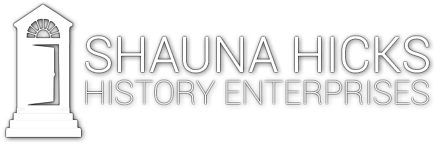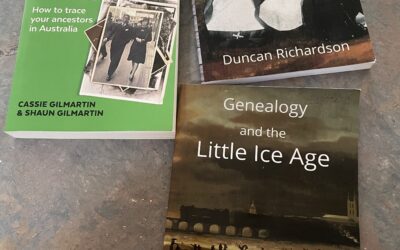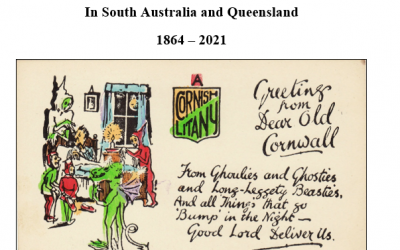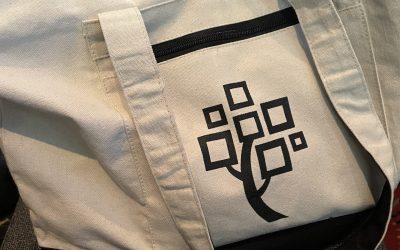This week I attended the Sense of Place local studies conference in Sydney. It was a very stimulating three days which started with a half day sites bus tour. Places visited included:
- The Whitlam Branch Library – Fairfield City Libraries
- Fairfield City Museum and Gallery
- Old Government House, Parramatta (National Trust of Australia, NSW )
- Parramatta Heritage Centre
The bus trip was very well organised and ran with almost military precision – no one was left behind and we stayed more or less to the timetable. Everyone was given a handout with each venue listed together with relevant facts and figures on each site.
At each place we were given a talk and quick tour of facilities and afternoon tea (delicious scones, jam and cream) at Old Government House. I collected various fact sheets and brochures to read up on later and at the end we were given the choice of returning by bus or taking the ferry back. I elected for the ferry trip down the Parramatta River to Darling Harbour which was a great way of seeing more of Sydney’s sights.
The conference proper started the next day with 11 speakers (the links are to the local studies pages on the relevant websites):
- Working Collaboratively in Local Studies in Orange NSW – Jan Richards, Central West Libraries
- Connecting Our Past With Our Future: A New Gateway to Maitland’s History and Heritage – Keryl Collard, Maitland City Council Library
- Sustaining Community Archives in the 21st Century – Joanna Newman, Archives New Zealand
- The Bendigo Regional Archives as a New Collaborative Model – Vivien Newton, Bendigo Library
- Looking Out, Not In: The Greatest Little Archive in New Zealand – Sandy Green, Masterton District Library
- Waratahs and Kookaburras in the Library: The Role of Survey Exhibitions at Mosman Library, NSW – Donna Braye, Mosman Library
- Innovation in Local Studies Collections and Programs: How Melbourne Library Service is Fostering Community Pride – Shirley Bateman, Melbourne Library Service
- Local Studies Cooperation in Camden, NSW – Jo Oliver, Camden Council Library Service
- Fostering Family and Local History in Libraries: the Hawkesbury Experience – Michelle Nichols OAM, Hawkesbury Library Service
- Museum Initiatives and Projects Applicable to Local Studies – Jayne Fitzpatrick, Toowoomba Local History Library
- Local Studies in the Wentworth Library: Our Sense of Place – Leanne Watmuff, Wentworth Shire Library (at the time of writing this blog the URL for the library was not working)
There was a panel session at the end of the day where all speakers responded to questions. Straight afterwards there was the conference reception in the Friends Lounge of the State Library of NSW with some tasty finger food and drinks. Maggie Patton Maps Librarian at SLNSW gave an entertaining talk and there was lots of chatting and networking.
The second day there were only nine speakers (the links are to the local studies pages on the relevant websites):
- From Manuscripts to Metadata: The Changing Face of Local Studies Librarianship – Diana Dixon, Southwold Museum, UK
- A Virtual Sense of Place: Public Libraries as Creators of Local Studies Indexes and Resources – Fran Inkster, Manly Library, NSW
- A R u Feeling Appy: Augmented Reality, Apps and Mobile Access to Local Studies Information, Ellen Forsyth, State Library of NSW
- In Google We Trust: Gen Y, the Internet and Local and Family History in Libraries – Carly Reimann, City of Tea Tree Gully Library Local History Office, SA
- Blogging and Local Studies: A New Approach to Old Stories – John MacRitchie, Manly Library NSW
- Digitising Council Minutes at the City of Nedlands, Western Australia – Anthea Harris, City of Nedlands Library, WA
- From Filing Cabinet to Cultural Centre: The Creation of a Community History Centre at the City of Wanneroo, WA – Carol Leigh, City of Wanneroo Libraries WA
- Many Interests, One Group: Creating and Celebrating History in a Modern Environment – Amanda Peckham, Hobsons Bay Libraries VIC
- Unlock the Past: Promoting History, Genealogy and Heritage in Australia and New Zealand – Shauna Hicks, Unlock the Past
Again there was a panel session at the end of the day where all speakers responded to questions and the final session discussed conference recommendations that will be followed up to promote local studies in a wider forum.
One of the things I like is that all the papers will be published and should be out by July 2011. It is very hard to take in so many papers each day so it will be good to reread all the papers in a few months time. Another feature of this conference is that copies of the Powerpoint slides from presentations will also be sent to those who expressed interest in receiving a copy.
The conference satchel included lots of interesting brochures all to be followed up at leisure (but who has time for that?).
I came away with a greater sense of just how much is out there in local studies land and how much is being done to make that more accessible and known to potential users. However there is still so much more to do and I still don’t think that researchers make the most of these resources.
One of the conference recommendations is that it be repeated, perhaps in five years time – in my opinion, local studies should be getting far greater exposure than that but then I have always been a fan. In the meantime, I will be doing my bit to spread the word on how great local studies centres are and why researchers should start seeking them out!





Excellent topic and it sounds a great conference. Local studies are a defintely a fantastic resource that are very under-utilised by family historians. This was the key point in an article I wrote for History and Genealogy 2011 and is something I feel strongly about.
Thanks for sharing all that information. When I did the Grad. Dip. Local and Applied History (University of New England) in the early 1990s, a lot of my fellow students were Local Studies librarians, mainly from NSW but a couple from Qld.
Thanks for the blog posting and links Shauna. I attended the conference which I found very worthwhile. It is always interesting to see what other libraries are doing out there. We were encouraged to partner and get to know our local history groups and the resources that they have which supplement our own local history collections. The Library can be a gateway to the local knowledge in the community. I am sure that there were many more stories in the audience of successful programs libraries are running to promote our communities local history. Local history is family history’s big brother they say – I encourage all family and local history researchers to find out what their local library has to offer. Yarra Plenty Regional Library in partnership with Darebin and Moreland councils in Melbourne facilitate the wiki website Wikinorthia: documenting life in Melbourne’s north at http://www.wikinorthia.net.au
What a coincidence – I blogged about the Parramatta Heritage Centre last week!
I always visit the local library when on a genealogy trip – have found some great local resources.
Thanks for the blog posting Shauna, I also was at the conference and enjoyed it – I was impressed with the military precision too, on time every day! It is interesting to see what others are doing and to be reassured we at Ballarat are ‘on the right track’. I came away re-enthused and re-motivated, being reminded that local studies really contributes to the civic pride and social fabric of “our place” wherever that is – fantastic job all librarians! If only there was more recognition both from above and below – so go and meet your local librarians, and find out what they are doing for you.